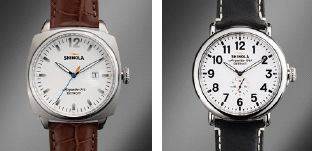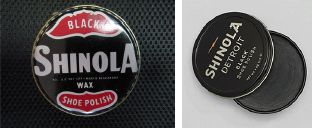HOW TO WIN THE OLYMPIC GOLD MEDAL IN THE SUPER BOWL OF TRADEMARK INFRINGEMENT
Like any red-blooded American sports fan, the realization that both the Super Bowl and the Winter Olympics are only a few weeks away makes my thoughts turn to only one thing.
Trademark infringement.
Both of these iconic events have famous trademarks with extensive legal protection – and owners who take their rights very, very seriously.
The National Football League owns trademark rights, not only in its own name and logo, and in the names and logos of all 32 member teams, but also in the word SUPER BOWL and related logos. The league has been known to take a dim view of people using its registered marks without permission.

Not that people haven't tried, of course. Applications to register all of the following have been filed in the Trademark Office, and all have failed:
- Super Bowl of Motocross
- Super Bowl of Poker
- Sooper Bowl of Comedy
- Super Bowl of Portable Restrooms (I swear I didn't make that up).
There are others. And those are only the ones that someone applied to register. Imagine how many there must be that weren't applied for.
But the strength of the NFL's rights pale in comparison with those of the people who run the Olympics, whose marks are protected not by the usual trademark laws but by their very own statutes, whose liability standards and potential penalties are especially stringent.
Here in the U.S., the Ted Stevens Olympic and Amateur Sports Act, 36 U.S.C. § 220501 et seq., gives the United States Olympic Committee exclusive control over the following symbols, terms, and phrases, among others:
- The Olympic symbol (five interlocking rings representing the five continents)
- "Olympic"
- "Olympiad"
- "Citius. Altius. Fortius." ("Swifter. Higher. Stronger.")

The statute permits the USOC to sue anyone who, without permission, uses the Olympic trademarks to market goods or services, or to promote a theatrical exhibition, athletic performance, or competition. A showing of likelihood of consumer confusion – usually the touchstone of trademark infringement – is not required. Other countries have their own statutes, which may differ in various respects.
Two years ago, the Summer Olympics in London produced a number of stories about small-town merchants who got nasty-grams from the sponsoring committee. Some of the situations – like the butcher who made a five-ring display out of sausage links – were mildly amusing. One shudders to think about what kinds of cease-and-desist letters they write in Russia...
The lesson is simple. If you're thinking about using any Olympicsor Super Bowl-related words, slogans, or symbols to market your goods and services, think again. And talk to a trademark lawyer before proceeding.
WHAT DO YOU KNOW FROM SHINOLA?
Some readers will recognize "Shinola" as the name of a shoe polish whose popularity peaked in the years following World War II. Others will recognize it from a well-known vulgarism, in which clueless people are said to have trouble distinguishing Shinola from... well, from something else. (This is a family newsletter, after all).
Today the name stands for something quite different: for hand-made luxury watches sold in high-end stores like Barney's, Saks, and Neiman Marcus , and manufactured in – of all places – Detroit.

In addition to watches, the company makes bicycles and a number of other products; it has boutiques in Detroit, Kansas City, and New York, recently debuted in Paris, and has plans for the U.K. and Germany.
There's a lot that's interesting about the new Shinola. Start with the fact that watch-making hasn't been a prominent U.S. industry since the late 1960s. Add to that the fact that Detroit, which recently made headlines by filing for bankruptcy, hasn't exactly been a magnet for new manufacturing ventures in recent years.
And then, of course, there's the name.
The company behind Shinola says it picked the name because of its "earthy authenticity." There's no question that "Shinola" is an attention-getter to anyone familiar with the well-known vulgarism (or to the original shoe polish, which the new company has resurrected). The company's success is a testament to the enduring power of a striking brand name.

Shinola shoe polish, then and now
Equally important is the company's recognition of the importance of protecting its catchy name. Under U.S. trademark law, two or more people can use identical trademarks if their goods and services are sufficiently different – for example, "Eagle" brand snack foods, "Eagle" brand doorbells, and "Eagle" brand carburetors. So in theory, other parties hoping to cash in on the "Shinola" cachet could latch onto the name for use with products other than watches, bicycles, and shoe polish.
But Shinola is a step ahead of them. It has filed no fewer than six trademark applications indicating an intent to use SHINOLA for everything from bicycles to soft drinks (to be called – what else? – "Shinola Cola") to furniture, cigar cases, computer games, and more. As a result, it is first in line for using its mark on any or all of these products.
Which raises an obvious question. Maybe you have plans to expand use of your name to new and different products. Or maybe you have a new name in mind for products that are still on the drawing board. Have you taken steps to make sure your brandmark can't fall into someone else's hands in the meantime?
The content of this article is intended to provide a general guide to the subject matter. Specialist advice should be sought about your specific circumstances.
